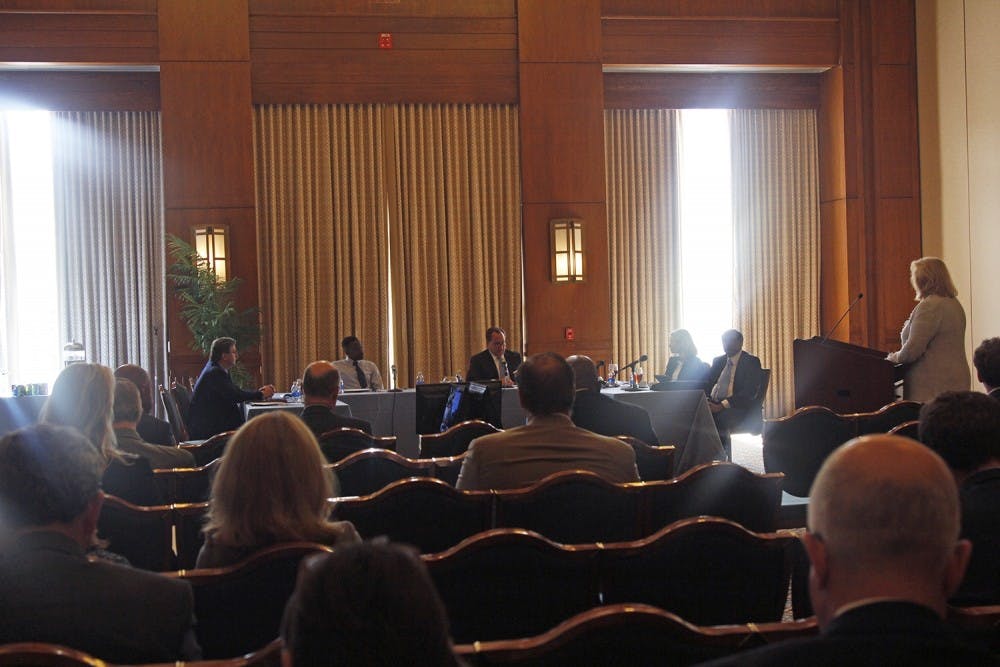The University Affairs Committee assembled on Wednesday. Here’s the rundown:
Chronicling the increasing need for Counseling and Psychological Services at UNC, Vice Chancellor for Student Affairs Winston Crisp presented statistics that reflected a dramatic increase in student use of on-campus mental health services since the 2012-13 academic year.
Crisp updated the BOT on the changing dynamics concerning student use of CAPS on campus, breaking down how the 2018-19 Student Health Fee would be used across divisions of campus health.
The frequency of walk-in evaluations at CAPS increased by 104 percent within the specified timeframe. Similarly, they saw a 101 percent increase in scheduled urgent next-day follow-up appointments, though the proportion of the student population availing themselves of services offered at CAPS remained relatively consistent.
Crisp noted that, though CAPS does not currently function as a resource for students seeking long-term therapeutic care, up to 30 percent of the students evaluated at CAPS are found to be in need of care that extends beyond the short-term services available and must be referred to providers within the community.
“This is not about what’s wrong with mental health care on this campus. There is nothing wrong with mental health care on this campus, except that we’re overwhelmed,” said Crisp, addressing the negative nature of his presentation. “So we have to figure it out; we can’t just be overwhelmed and accept that.”
Crisp’s implication that CAPS might eventually need to undergo a change in approach and consider offering more long-term services was met with some pushback from University Affairs Committee Chairperson Charles Duckett, who responded he did not see funding of long-term services as a goal for CAPS.
Crisp and Provost Bob Blouin have convened a Mental Health Task Force to evaluate and address the role of CAPS and its sources of funding in the lens of the changing needs of the student body.
James Leloudis, associate dean for Honors Carolina and a professor of history, provided updates on the Chancellor’s Task Force on UNC history.



